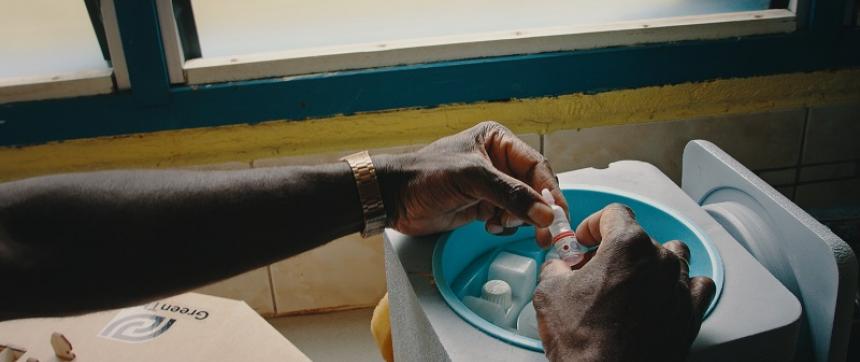 | News
| News
Australia steps up support to improve immunisation in the Indo-Pacific
Australia will provide additional funding to support countries to strengthen immunisation efforts in the Indo-Pacific region, including preparing for the potential introduction of a COVID-19 vaccine.
The Australian Regional Immunisation Alliance (ARIA), supported by a $3 million grant from the Department of Foreign Affairs and Trade’s Indo-Pacific Centre for Health Security, will work with partner governments and development partners, including the World Health Organization (WHO) and UNICEF, to support immunisation programs in the Pacific region starting with Timor-Leste and Papua New Guinea followed by other Pacific Island Countries. Current WHO estimates show that immunisation coverage rates are as low as 24% in some countries in the Western Pacific region, which puts them at risk of outbreaks of serious vaccine preventable disease such as measles, polio and diphtheria.
Coordinated by the Australian National Centre for Immunisation Research and Surveillance (NCIRS), ARIA brings many of Australia’s leading immunisation and vaccine preventable disease experts together to be available to the countries in the region according to their needs. Experts are drawn from the University of Sydney, the Murdoch Children’s Research Institute, the Burnet Institute, the Kirby Institute, the University of Melbourne, Menzies School of Health Research, the Australian National University, Telethon Kids Institute and other institutions. The Alliance members will provide technical and capacity building support, as requested by Indo-Pacific country health ministries and other key stakeholders, for immunisation-related activities, including support for the elimination of measles and preparation for the introduction of a COVID-19 vaccine in 2021.
Professor Kristine Macartney of the University of Sydney and Chair of ARIA said that ARIA seeks to work collaboratively in support of a common goal. “We see a critical need for better and more equitable vaccine preventable disease control across our region. A number of our nearest neighbours have suffered outbreaks of measles, polio and diphtheria in recent years and are now experiencing real challenges in the delivery of routine immunisation programs due to the COVID-19 pandemic; they are also hoping to introduce COVID-19 vaccines rapidly when available.”
Notably, a number of ARIA experts are members of peak global advisory groups to WHO and others on COVID-19 vaccines.
In a statement earlier this week, the Australian Government announced an $80 million contribution to the COVAX Advanced Market Commitment, a global vehicle designed to provide rapid, fair and equitable access to COVID-19 vaccines for developing countries to ensure that the world’s poorest don’t miss out. The COVAX Facility is a pooled procurement mechanism for new COVID-19 vaccines, which seeks to ensure fair and equitable access to vaccines for each participating country. WHO states that 172 countries are engaging with the COVAX facility but more funding and binding country commitments are needed.
“One of the key barriers to introducing life-saving new vaccines into national immunisation programs is cost. This announcement is therefore a major milestone for our region as it will help ensure equitable access to a COVID-19 vaccine for all countries. This is a historic moment which will hopefully spark change and set new standards for all new vaccines, not just the COVID-19 vaccine,” said Professor Fiona Russell, Lead of Asia-Pacific Health Research at the Murdoch Children’s Research Institute and Deputy Chair of ARIA.
